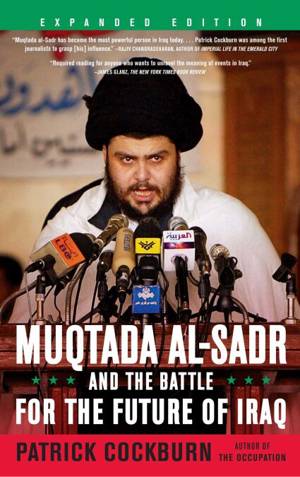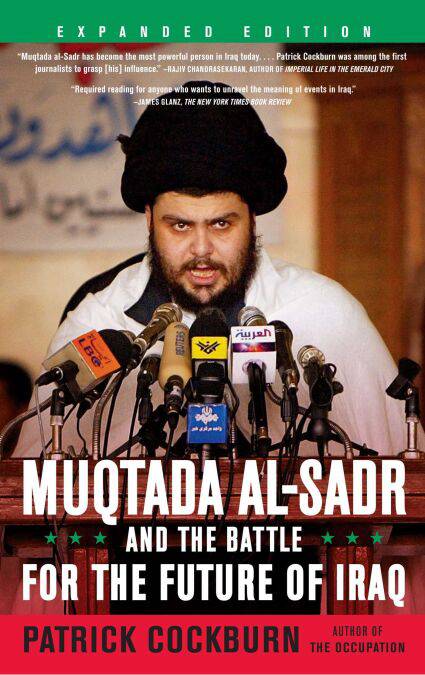
- Retrait gratuit dans votre magasin Club
- 7.000.000 titres dans notre catalogue
- Payer en toute sécurité
- Toujours un magasin près de chez vous
- Retrait gratuit dans votre magasin Club
- 7.000.0000 titres dans notre catalogue
- Payer en toute sécurité
- Toujours un magasin près de chez vous
14,53 €
+ 14 points
Format
Description
Time magazine listed him as one of its "100 People Who Shape Our World." Newsweek featured him on its cover under the headline "How Al-Sadr May Control U.S. Fate in Iraq." Paul Bremer denounced him as a "Bolshevik Islamist" and ordered that he be captured "dead or alive." Who is Muqtada al-Sadr, and why is he so vital to the future of Iraq and, arguably, the entire Middle East?
In this compellingly readable account, prize-winning journalist Patrick Cockburn tells the story of Muqtada's rise to become the leader of Iraq's poor Shi'ites and the resistance to the occupation. Cockburn looks at the killings by Saddam's executioners and hit men of the young cleric's father, two brothers, and father-in-law; his leadership of the seventy-thousand-strong Mehdi Army; the fierce rivalries between him and other Shia religious leaders; his complex relationship with the Iraqi government; and his frequent confrontations with the American military, including battles that took place in Najaf in 2004. The portrait that emerges is of a complex man and a sophisticated politician, who engages with religious and nationalist aspirations in a manner unlike any other Iraqi leader.
Cockburn, who was among the very few Western journalists to remain in Baghdad during the Gulf War and has been an intrepid reporter of Iraq ever since, draws on his extensive firsthand experience in the country to produce a book that is richly interwoven with the voices of Iraqis themselves. His personal encounters with the Mehdi Army include a tense occasion when he was nearly killed at a roadblock outside the city of Kufa.
Though it often reads like an adventure story, Muqtada is also a work of painstaking research and measured analysis that leads to a deeper understanding both of one of the most critical conflicts in the world today and of the man who may well be a decisive voice in determining the future of Iraq when the Americans eventually leave.
In this compellingly readable account, prize-winning journalist Patrick Cockburn tells the story of Muqtada's rise to become the leader of Iraq's poor Shi'ites and the resistance to the occupation. Cockburn looks at the killings by Saddam's executioners and hit men of the young cleric's father, two brothers, and father-in-law; his leadership of the seventy-thousand-strong Mehdi Army; the fierce rivalries between him and other Shia religious leaders; his complex relationship with the Iraqi government; and his frequent confrontations with the American military, including battles that took place in Najaf in 2004. The portrait that emerges is of a complex man and a sophisticated politician, who engages with religious and nationalist aspirations in a manner unlike any other Iraqi leader.
Cockburn, who was among the very few Western journalists to remain in Baghdad during the Gulf War and has been an intrepid reporter of Iraq ever since, draws on his extensive firsthand experience in the country to produce a book that is richly interwoven with the voices of Iraqis themselves. His personal encounters with the Mehdi Army include a tense occasion when he was nearly killed at a roadblock outside the city of Kufa.
Though it often reads like an adventure story, Muqtada is also a work of painstaking research and measured analysis that leads to a deeper understanding both of one of the most critical conflicts in the world today and of the man who may well be a decisive voice in determining the future of Iraq when the Americans eventually leave.
Spécifications
Parties prenantes
- Auteur(s) :
- Editeur:
Contenu
- Nombre de pages :
- 256
- Langue:
- Anglais
Caractéristiques
- EAN:
- 9781439141199
- Date de parution :
- 20-10-08
- Format:
- Ebook
- Protection digitale:
- Adobe DRM
- Format numérique:
- ePub

Les avis
Nous publions uniquement les avis qui respectent les conditions requises. Consultez nos conditions pour les avis.






